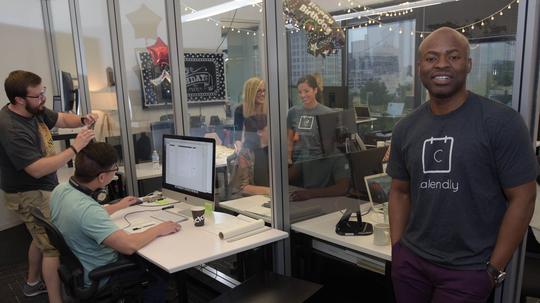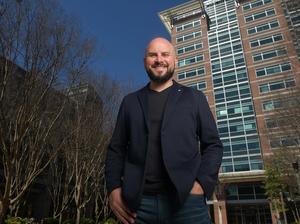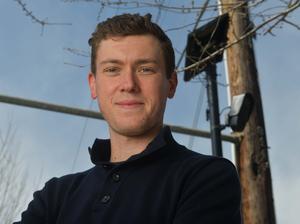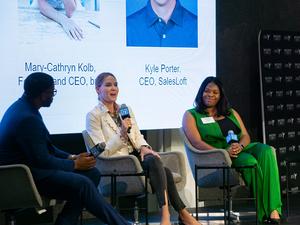
Atlanta unicorn Calendly is ditching its office in favor of an all-remote workforce — a bold move as other companies opt for hybrid work models.
The meeting scheduling software startup added 200 employees since the start of the pandemic. Individual productivity seemed to increase and collaboration didn't seem to suffer while employees worked from home, Chief Revenue Officer Patrick Moran said.
Internal surveys also showed employees generally favored remote work, so Calendly scrapped the office.
The strategy allows Calendly to recruit talent globally. It also creates a more cohesive culture among all cities, rather than concentrating a focus on one market, Moran said. Right now, about 80% of employees are based in metro Atlanta. The next highest concentration is in the Bay Area. Moran expects to have more than 500 employees by this time next year, with sales and marketing roles having the biggest growth.
“The number of companies that want to buy us for their company is growing wildly,” Moran said. “I can’t hire salespeople fast enough, so being remote is really helpful.”
Calendly’s remote workforce is one example of the different strategies companies are trying as they adjust to the late-pandemic business environment. Social media giant Twitter was among the first to announce indefinite work-from-home plan last fall, prompting a wave of followers.
Nationwide, companies are experimenting with the hybrid office model, where in-person attendance may only be required a few times a week. Many Atlanta startups and tech companies are following suit, allowing more flexibility for employees but retaining a physical presence.
Neighborhood watch startup Flock Safety is expanding its Atlanta office to accommodate more employees but isn't returning to a five-day work week. SalesLoft, another local unicorn, is allowing employees to decide how often they go into the office and allocating space accordingly. Financial technology giant Global Payments is testing out a hybrid model with no assigned desks at its new Alpharetta office.
Before the pandemic, startups tended to gravitate toward shorter leases, co-working space and offices near community amenities, said Lawrence Gellerstedt, a real estate professional who specializes in helping tech companies find office space. The pandemic made having flexible space more of a necessity.
“It’s going to be another 12 to 18 months before we have enough data to see what the future of the office will really look like,” Gellerstedt said.
Calendly employees will have one more chance to use its Atlantic Station office July 1 before it closes. The first company-wide gathering will be in late September at Mercedes-Benz Stadium, Moran said.
Team leaders can decide when and how often they need to meet in smaller groups. Each employee will also have a company-funded WeWork subscription with the option of going into a co-working space, Moran said.
Calendly uses Slack and Zoom as collaboration tools among employees, but the startup is also testing video presentation app mmhmm and video messaging app Loom. It plans to use the funds that would have gone toward office space to pay for large company gatherings up to three times a year and more frequent team meetups, Moran said.
Calendly’s origin story is deeply rooted within the Atlanta innovation ecosystem. CEO Tope Awotona founded the startup in the Atlanta Tech Village in 2013 with an investment from serial entrepreneur David Cummings.
After that initial funding, Awotona grew the company without any other outside investments until last January, when Calendly raised $350 million, surpassing a $3 billion valuation.
Though Atlanta will no longer serve as Calendly’s physical headquarters, Moran said the city’s culture influences the company’s values.
“Attached to the Atlanta ethos is a sense of humility,” Moran said. “We’re proud of being considered a unicorn, but we are absolutely humble and want to build a long-lasting business.”
Atlanta will remain the center of Calendly’s engineering team, and Awotona plans to continue to be active in the local innovation ecosystem. He’s an investor in Zane Venture Fund, an Atlanta early-stage firm focusing on funding diverse founders in the Southeast.







